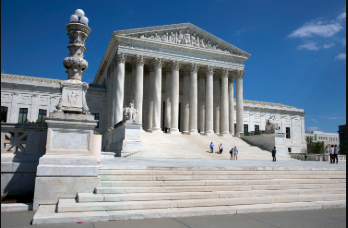Supreme Court: Pretrial Freeze of “Untainted” Assets Violates the Sixth Amendment Right to Counsel of Choice

In a decision which will impact criminal defendants and their ability to fight their cases with counsel of their own choosing, the Supreme Court yesterday ruled that the government may not freeze assets needed to pay criminal defense lawyers if the assets are not proceeds of the alleged criminal activity. The 5-3 decision, which mixed up the usual conservative and liberal alliances, found that the Constitution’s Sixth Amendment right to counsel was superior to the government’s interest in freezing and preserving untainted funds for restitution and penalties should prosecutors later obtain a conviction in cases involving bank fraud and health care offenses.
In 2012, Sila Luis was indicted on various Medicaid fraud charges. The government alleged that while she had obtained $45 million illegally, she had spent almost all of it, leaving her with about $2 million in remaining assets – all unrelated to the criminal allegations. The government then went to court to freeze those remaining assets pursuant to 18 U.S.C. § 1345 (a), a federal statute which allows courts to freeze assets unrelated to the charged crimes in certain classes of cases to ensure that assets remain available to pay fines and restitution following conviction. Unfortunately for Luis, this prevented her from hiring counsel of her choosing as she had no remaining, unfrozen assets left – thus her claim that her Sixth Amendment right to counsel was violated.
Luis v. United States, 578 U.S. ___ (2016)
In vacating this ruling, Justice Breyer, writing for the majority, stressed the important’s of a client’s right to the best criminal lawyer of his or her choosing and in a balancing test, determined that this right outweighed the government’s interest in preserving assets for restitution and fines down the road. The determining point, Justice Breyer wrote, is that the right to counsel is a fundamental constitutional guarantee, while the government’s interest in recovering money is simply important. “Despite their importance, compared to the right to counsel of choice, these interests would seem to lie somewhat further from the heart of a fair, effective criminal justice system.”
Furthermore, a client receiving court-appointed counsel in this scenario was not sufficient according to the majority decision: defendants, rendered indigent, would fall back upon publicly paid counsel, including overworked and underpaid public defenders” and that “increasing the government-paid-defender workload [would] render less effective the basic right the Sixth Amendment seeks to protect.”
The Dissenting Judges Are Skeptical
Justices Kennedy, Alito and Kagan dissented. “The true winners today are sophisticated criminals who know how to make criminal proceeds look untainted,” Justice Kennedy wrote in his dissent, which was joined by Justice Alito. He noted that criminal defendants can open shell companies and bank accounts under other people’s names and take steps “to disguise the origin of their funds.” However, the majority’s opinion addressed this concern that since money is fungible, “it will be difficult to say whether a particular bank account contains tainted or untainted funds.” Justice Breyer wrote that “the law has tracing rules that help courts implement the kind of distinction we require in this case.”
My Own Experience With the Government Denying Counsel of One’s Choosing
In my opinion, while this case does not impact every criminal defendant’s effort to hire counsel of their choosing as the government seeks to restrain their assets, it does suggest perhaps a growing uneasiness on the Court over the freezing of a defendant’s assets prior to conviction. I have had longtime clients with whom I have had a close professional relationship unable to hire me – even in cases in which I have represented them during the investigation phase – because the government had frozen their assets immediately following indictment. And these clients had to scramble to find lesser attorneys and ultimately end up miserable with long prison sentences, complaining about their new lawyers until the end. Since choosing your criminal representation might be the most important decision of your life, you shouldn’t be forced to take just any lawyer, you should be permitted to hire the best criminal lawyer in New York or wherever your case may be. Because with the best criminal lawyer you can actually win those multi-million dollar Medicaid Fraud cases, just as Sila Luis hopes to do now. Call the Law Offices of Jeffrey Lichtman to discuss your case today.
